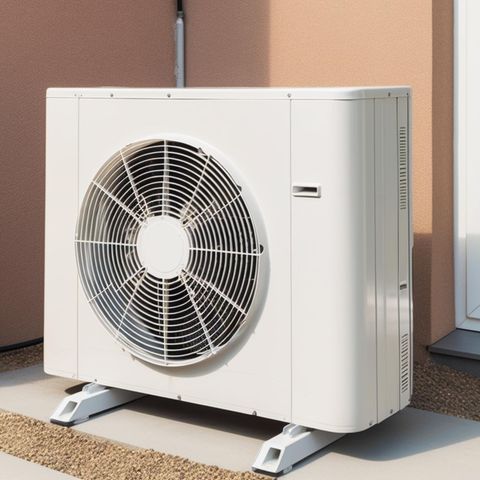Window Aircon Installation Tips for Singapore’s Humidity

Download and listen anywhere
Download your favorite episodes and enjoy them, wherever you are! Sign up or log in now to access offline listening.
Description
Window Aircon Installation Tips for Singapore’s Humidity Installing a window air conditioning unit in Singapore requires careful planning to maximize efficiency, given the region’s high humidity levels. With Singapore’s climate,...
show moreInstalling a window air conditioning unit in Singapore requires careful planning to maximize efficiency, given the region’s high humidity levels. With Singapore’s climate, a well-installed and maintained aircon can be a game-changer for comfort. Here are essential tips for ensuring your window air conditioner operates effectively in a humid environment.
Choose the Right Capacity
To ensure optimal cooling, select an air conditioner with the right BTU (British Thermal Unit) capacity for your room size. Too high a BTU rating will cause the aircon to cool too quickly without properly removing humidity, while too low a BTU rating can overwork the unit, reducing efficiency. To make sure your air conditioner is perfectly suited to your needs, consult a sizing chart or reach out to a professional like LS Aircon Servicing for expert advice and support in Singapore.
Ensure Proper Sealing and Insulation
Humidity control depends on proper sealing and insulation. Use weatherstripping to seal any gaps around the unit and prevent warm, moist air from seeping inside. Insulation not only reduces humidity but also enhances energy efficiency, preventing your air conditioner from overworking.
Position the Aircon Correctly
For effective dehumidification, slightly tilt the unit outward to allow proper drainage. Window air conditioners typically come with a drain hole or hose, but a slight angle helps direct excess moisture outside, preventing water buildup that could damage the unit or cause mold growth.
Install a Drainage System
High humidity means more condensate from your air conditioner. Check if your unit has a built-in drainage system or create a way for water to drain effectively. Clogged drainage can lead to water leaks, reduce efficiency, and potentially harm your home’s interior.
Regularly Clean Filters and Coils
In humid conditions, window air conditioners can accumulate dust, mold, and other particles more quickly. Regularly cleaning or replacing filters and wiping down the coils helps maintain air quality and the unit’s performance. A clean air conditioner removes humidity and cools efficiently, saving energy in the long run.
Consider Additional Humidity Control
Singapore’s intense humidity might require extra measures beyond air conditioning alone. A dehumidifier in combination with your window unit can help maintain comfort, reduce moisture, and prolong the life of your air conditioner.
Schedule Regular Maintenance
Annual maintenance by a professional technician ensures that your unit is working at its peak and helps identify any potential issues before they become costly problems. Professional servicing can address issues like clogged drain holes, refrigerant levels, and general wear that impacts humidity control and cooling.
Conclusion
Installing a window air conditioner in humid Singapore calls for careful planning, from selecting the right BTU capacity to ensuring proper drainage and maintenance. By following these tips, you’ll create a cooler, less humid indoor environment and maximize the lifespan of your unit, staying comfortable all year round.
Information
| Author | airconserving |
| Organization | airconserving |
| Website | - |
| Tags |
Copyright 2024 - Spreaker Inc. an iHeartMedia Company
